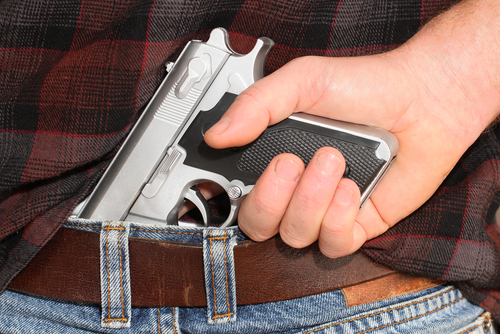
In the first nine months of 2018, there were 36 school shootings in the United States, resulting in 81 injuries and 42 deaths. While some believe that more regulations are necessary to stop these events, others want to protect the lives of students and staff by allowing concealed weapons on certain campuses.
This is a hotly debated topic, and it is an issue that is currently addressed at the state level. Some states allow people, including teachers and students, to have licensed concealed weapons on campus and others don’t permit the practice. Still others have tight restrictions on who can do this and under what circumstances. In some states, the decision to allow concealed weapons on campus is left up to the individual college or campus.
The Citizens Crime Commission of New York City conducted a study on campus gun violence. It found that, between the 2010-11 and 2015-16 school years, on-campus shootings increased from 12 to nearly 30, a 150% increase. Since 2011, there have been close to 200 shootings on college campuses, with the most incidents taking place in California, Florida, Tennessee, Virginia, Georgia, and North Carolina. If you’re wondering whether you can carry a concealed weapon on an Alabama college campus, the answer is, “It depends.”
Although many states allow citizens to apply for a concealed carry permit and have a concealed weapon on their person, they draw the line at permitting this on a college campus. The 16 states that have expressly forbidden this include:
Some states have given a blanket approval for people to conceal and carry firearms on their public college campuses. Tennessee only allows faculty to have this privilege. Both Arkansas and Georgia are the most recent additions to the states that allow faculty, students, and visitors to conceal and carry on campus. Other states that allow this include:
That leaves 23 U.S. states, all of which put the decision on conceal and carry into the hands of the individual colleges or campuses. When it comes to Alabama, there have been some decisions that apply statewide.
For example, the Alabama Community College System has a rule (Board Policy 511.01) stating that no guns are allowed on the state’s community college campuses – with a few exceptions. Law enforcement officers who are either acting in the performance of their duties or who are enrolled in classes may carry firearms. Firearms are also permitted when they are part of an instructional program at the school.
The entire University of Alabama system has established a “Dangerous Weapons & Firearms Policy.” The policy expressly prohibits any “dangerous weapons” on its campuses. These include:
The policy forbids anyone on campus from having such things as guns, rifles, ammunition, crossbows, swords, tasers, and air guns. It applies to students, faculty, staff, and visitors. The only exception applies to law enforcement officers who are on duty. Private security officers and other staff with an express purpose must receive pre-approval from the university to have a firearm on campus.
Gun laws can be complex, particularly when a regulatory body decides to make sweeping changes. Running afoul of the law when it comes to a firearms regulation can lead to some unpleasant consequences not to mention a potentially dangerous encounter with law enforcement.
If you have been accused of violating a gun law or have questions about Alabama’s laws related to firearms, contact the knowledgeable attorneys at McPhillips Shinbaum, LLP for assistance. Reach us at our Montgomery office at 334.262-1911.